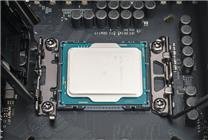The Impact of the Netherlands’ Semiconductor Policy on Automakers
Summary:
- The Netherlands’ recent semiconductor acquisition attempts are sparking significant supply chain challenges.
- Nissan has announced production cuts for its popular SUV model due to a shortage of chips from Nexperia.
- Other automotive manufacturers, including Volkswagen, may soon face similar issues if the situation does not improve.
The ongoing geopolitical landscape regarding semiconductors has reached a critical juncture, particularly with the recent actions taken by the Netherlands. In an era where microchips are the backbone of modern technology, the repercussions of these maneuvers are becoming increasingly evident across various industries.
Recent reports indicate a significant supply shortage of Nexperia chips, affecting multiple automotive manufacturers. Nissan, a major player in the industry, has disclosed plans to reduce the production of its highly sought-after Rogue model. This reduction, set to commence on November 10, will see Nissan decreasing output by approximately 900 units at its Kyushu facility in Japan. The company is actively reevaluating its production strategies for subsequent weeks as it grapples with ongoing supply deficiencies.
Nissan’s predicament is not an isolated occurrence; the ripple effects of these supply shortages are being felt across the automotive sector. Companies like Volkswagen and others are on notice, as they may be compelled to curtail production as well if the current situation remains untenable.
Nexperia, a key semiconductor supplier based in the Netherlands, has communicated to its clients that it is unable to ascertain when chip supplies from its Dongguan factory in China might stabilize. A staggering 70% of Nexperia’s production occurs in China, which complicates matters and signals a looming crisis in the European semiconductor market. Without diplomatic resolutions, the European front-end market could soon face a dire shortage of packaging capacity.
Industry Implications
The semiconductor industry is witnessing a paradigm shift as geopolitical tensions escalate. The focus on securing supply chains has intensified, compelling nations and corporations to rethink their strategies. For manufacturers like Nissan, the consequences of geopolitics manifest in tangible production challenges, leading to not only immediate financial repercussions but also potential long-term impacts on brand reputation and market positioning.
Moreover, the impact on technological innovation cannot be understated. As companies grapple with reduced chip supply, the pace of advancements in automotive technology, including electric vehicles (EVs) and autonomous driving systems, could stall. This stagnation could have broader implications for environmental goals and competitiveness in a rapidly evolving global market.
Need for Solutions
The current semiconductor crisis underscores the necessity for collaboration among manufacturers, governments, and advocacy groups. Potential solutions could involve exploring alternative supply sources or fostering partnerships with newer semiconductor firms.
Companies may also need to invest in research and development to identify innovative packaging and manufacturing technologies. These advancements could provide additional resilience against similar disruptions in the future.
Additionally, fostering diplomatic relations may prove crucial in averting potential calamities. Engaging in multilateral discussions to ensure stable chip supplies might help alleviate ongoing tensions and pave the way for smoother operations across the supply chain.
Conclusion
The semiconductor supply crisis provoked by the Netherlands’ recent strategic decisions highlights the vulnerabilities inherent in global supply chains. With Nissan’s production cuts serving as a harbinger of broader automotive industry challenges, the need for immediate interventions has never been more pressing.
As we navigate this complex landscape, it remains imperative for stakeholders across industries to unite in response efforts. Innovating for efficiency and forging collaborative paths forward will be essential to ensure resilience in the face of ever-changing geopolitical dynamics.
Ultimately, the actions taken today will determine the course of the semiconductor industry and its capacity to support the burgeoning technological landscape of tomorrow.









